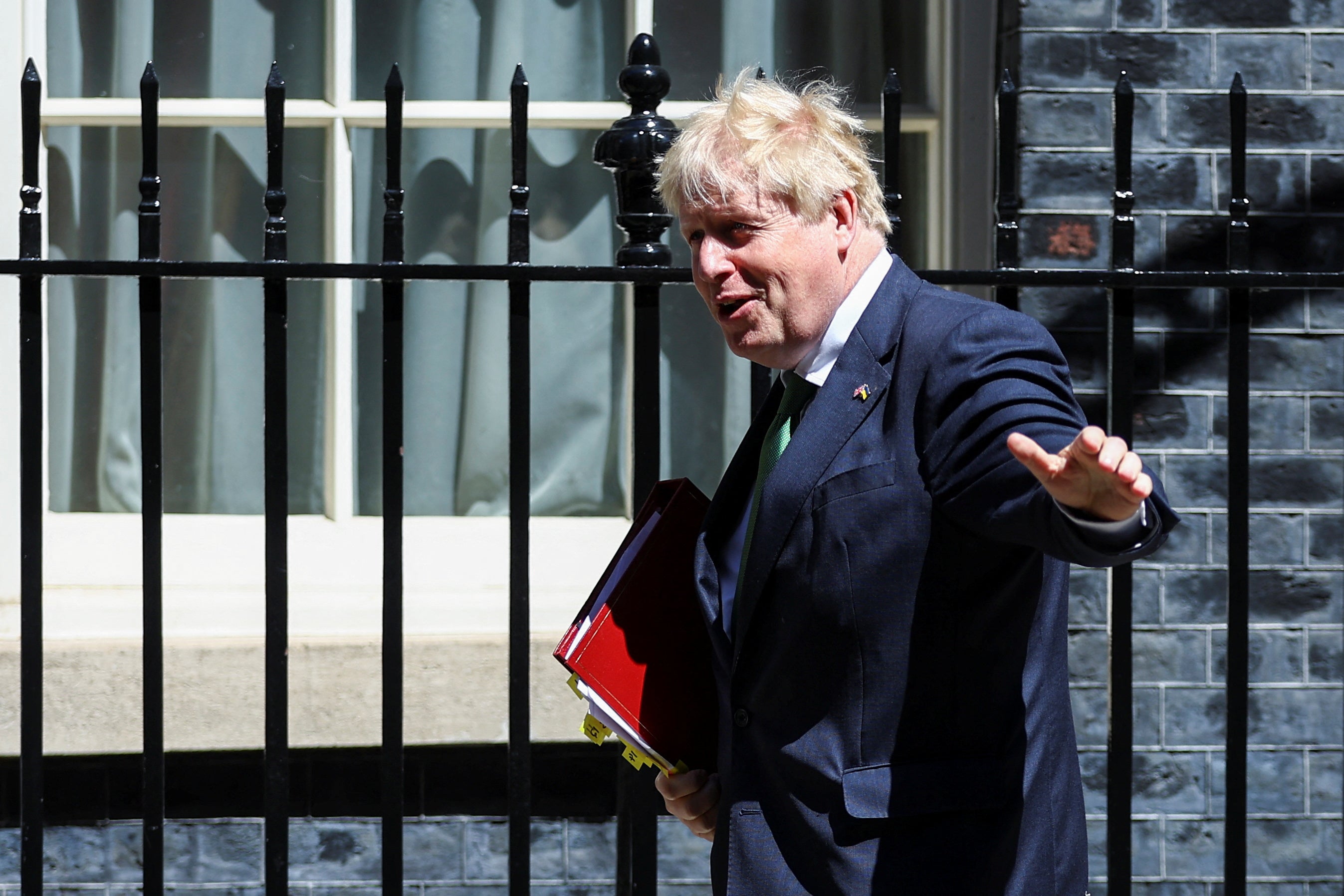Boris Johnson has little scope for tax cuts – they won’t fix the problems he faces
Unlike previous cyclical downturns, Brexit has introduced new structural weaknesses into the economy, writes Sean O’Grady


Although some premiers make it look easy, governing, even in good times, is a difficult, frustrating, endlessly challenging business. In bad economic times, though, it is far more difficult. And so it is proving for Boris Johnson.
Even without Partygate or the Covid-19 pandemic, the weakness of the British economy would surely have led to unpopularity and the kind of economic crisis we are now experiencing – and with it the political price it has exacted from the prime minister and his party. Hence his troubles. Indeed, if he could have cut taxes properly over the past couple of years then he might well never have faced a vote of no confidence. We cannot know for sure, but the next 12 months will, if anything, be as hard as any, with the obvious exception of the lockdowns.
The Organisation for Economic Cooperation and Development is the latest body to predict dismal economic growth for the UK in 2023 – 0 per cent. It is in line with the forecasts from the Bank of England and the Office for Budget Responsibility. It suggests a brush with technical recession (two-quarters of successive “negative growth”), and continuing problems with shortages, high inflation, rising interest rates and mortgage bills. With that come squeezed living standards and strikes, as workers attempt to defend their real wages. It follows another bottom-of-the-G7 growth performance in 2022. None of these factors are usually associated with political success.
That means there will be little scope for tax cuts or spending increases for the foreseeable future, though the enthusiasm with which the Treasury hiked taxes and national insurance (principally by freezing higher-rate thresholds) does give the government some room for manoeuvre. The problem is that loosening fiscal policy with tax cuts and boosts to spending on “levelling up” and subsidising energy bills means less scope to bear down on debt and borrowing.
A pre-election splurge also works against the Bank of England’s attempts to take spending power out of the economy to reduce demand and cool inflationary pressures, especially in the overheated labour market.
So the usual dilemmas of political management are going to be unusually difficult for the near future at least. While the war in Ukraine and post-pandemic disruptions are all playing a part in global trends, the issue that is pushing Britain, uniquely, towards semi-permanent recession and inflation is of course Brexit. The data shows that it has had a powerful and inevitable impact on exports and on private sector business confidence and investment – and the prospect of a trade war with the EU isn’t helping matters. The post-Brexit shortages of labour are affecting businesses, too, in obvious ways.
Yet neither party is willing to open up about the real-world economic impact of Brexit – for obvious reasons. The government, led by “Mr Brexit” himself, can scarcely admit it hasn’t lived up to its promise. Labour cannot risk alienating the voters in its heartlands who have invested so much in “believing in Britain” and their conviction that EU migration was the reason that public services were so poor. But those Brexit effects on trade and private investment constitute much of the reason for Britain’s economic malaise.
Unlike previous cyclical downturns or supply-side shocks (such as oil crises), Brexit has introduced new structural weaknesses into the economy. Labour does address these now, with its credible themes of low investment leading to poor productivity growth and higher inflation as the productive capacity of the country is diminished, but the B-word is rarely uttered.
Keir Starmer (along with one or two Tories) is starting to talk about how to make Brexit work, and building a better relationship with Europe, but it is a necessarily tentative foray into political territory that is still heavily mined. For the voters, there is the sense that no one is quite telling them the brutal truths about the state of the economy, and everyone is pretending that tax cuts or fuel-bill subsidies are all that is needed to solve the cost of living crisis, and it will soon be over.
It is wrong, and a recipe for an embittered, volatile electorate as the next election nears, more or less a decade after the Brexit referendum, with few feeling better off than, or as optimistic as, they did in 2016. That is why the PM’s troubles have only just begun.



Join our commenting forum
Join thought-provoking conversations, follow other Independent readers and see their replies
0Comments